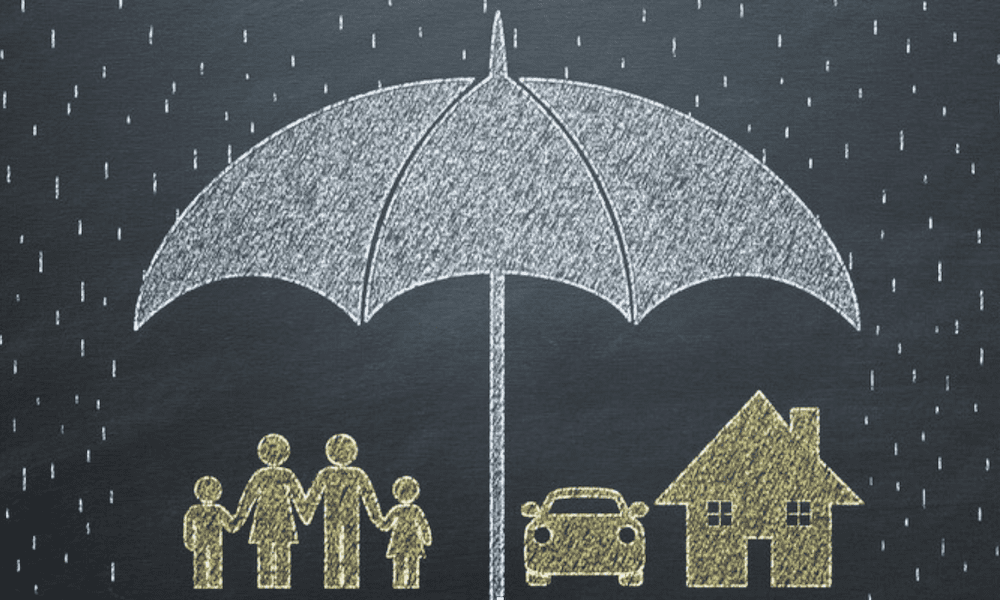
A multicar pileup is traced back to your vehicle as the root cause of the accident. An ill-timed social media comment sparks a viral defamation backlash. You have a party at your apartment and, unbeknownst to you, the punch was spiked – one of the underaged guests gets in a car accident while driving home.
Any of these situations can land you on the hook for a major lawsuit. Innocent or not, you’re playing defense in court. Your existing insurance helps with legal fees, but the price to defend yourself can quickly exhaust a typical renters insurance policy. When your policy limits are exhausted, you may find yourself in dire straits.
Adding a personal umbrella policy can help to keep you protected. Find out how an umbrella policy could save you money, increase limits across multiple policies and broaden your coverage.
Umbrella coverage isn’t just for homeowners or rich people
You bundled your renters and auto policies to maximize discounts – that’s smart. You might think an umbrella isn’t necessary because you’re not rich or that extra million dollars in coverage is overkill. You’d be wrong.
For less than what you’d spend on a daily coffee run, you could get $1 million in coverage that extends across your renters and auto policies. Easy.
Let’s say you lose a personal injury lawsuit. The compensation amount might be left to a jury to decide. If that jury is asked to account for pain and suffering, future lost earnings or loss of quality of life, you might be hit with a settlement in the millions. The court will find a way for you to pay even if you think you can’t afford it.
What you currently have in your checking account is irrelevant because you (and your spouse) have assets: your retirement, savings accounts, annuities, current income and future income. It’s all on the line and fair game when calculating net worth in a lawsuit.
Who needs an umbrella?
Almost anyone is at risk for being sued, especially if you or your spouse:
- Host parties (holidays, kid sleepovers, sports, etc.)
- Have teen drivers
- Coach youth sports
- Lead or host youth groups
- Have a swimming pool, hot tub or trampoline
- Own toys (snowmobile, boat, golf cart or ATV)
- Own rental properties
- Own pets (especially dogs)
- Carpool or drive a lot
- Babysit for children or host homeschool pods
- Have a high net worth
- Are active on social media
- Do gig work
Benefits of an umbrella
Unfortunately, lawsuits happen; they also happen to be expensive. An umbrella can be a nice buffer for your risk management playbook. An umbrella can:
- Extend the coverage across your existing policies
- Be cheaper than raising limits on individual separate policies
- Broaden your coverage once the umbrella kicks in (less restrictive language)
- Provide $1 million to $10 million in coverage
- Offer over $10 million in coverage (when underwritten by specialty insurance companies)
- Boost coverage on defamation and other clauses named in your policies
- Help pay legal fees and judgment costs
- Allow insurance companies to negotiate a settlement for you
Thankfully, plenty of asset protection is possible when you put an umbrella over your policies.
Deploy an umbrella over your personal assets
Now that you’re aware of the potential for expanded coverage, savings and service, let’s chat so you can learn what’s available. You might be surprised at how inexpensive it is to double (or even triple) your upper limits.
An umbrella only covers what’s already there in your policies. If something is excluded in your renters or auto policy, it will likely be excluded in the umbrella. Also, umbrella coverage only triggers after your renters or auto policy limits are spent. Once it does kick in, an umbrella usually extends even broader coverage.
